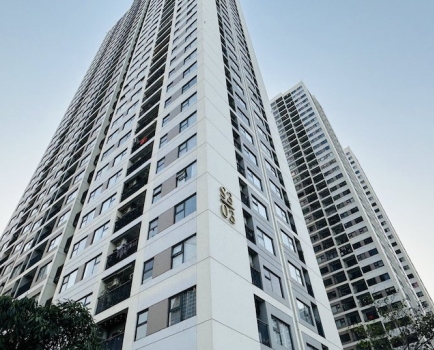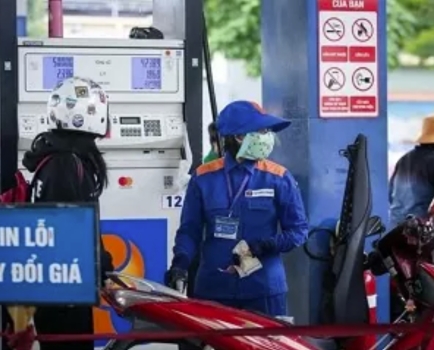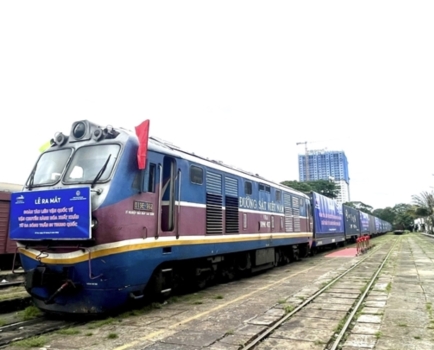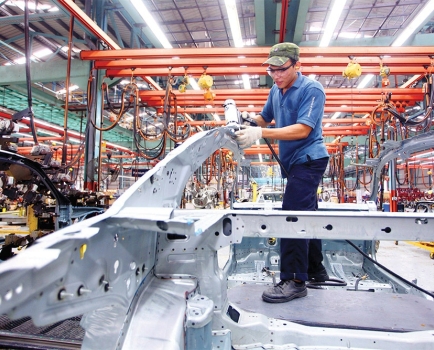National Assembly supports merger of bourses
Fri, 07 Jun 2019 16:10:00 | Print | Email Share:
Merging the two national stock exchanges would improve efficiency and trading conditions, the 14th National Assembly heard at a meeting on June 6.
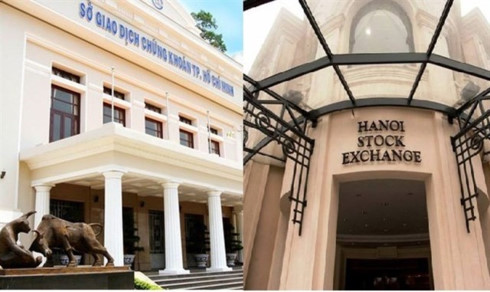
Outside the Ho Chi Minh Stock Exchange (HoSE) and Hanoi Stock Exchange
(Photo: baohaiquan.vn)
According to a draft amendment to the Law on Securities, the existence of the two exchanges in different cities had become outdated given Vietnam’s efforts to take advantage of Industry 4.0 to strengthen the equity market.
“Merging the two exchanges and basing it in the country’s financial hub (Ho Chi Minh City) is the solution,” the report said.
The proposed merger has stirred public concern over the past two years.
A number of experts and specialists have supported the idea, saying the merger would remove differences between the two exchanges. It would make requirements the same for companies on both trading bourses.
Besides, the post-merger exchange, which would be called the Vietnam Stock Exchange, would make trading conditions better for both domestic and foreign investors as there were now too many contrasts between the two bourses.
Listing requirements for the Ho Chi Minh Stock Exchange (HoSE) are considered harder than those for the Hanoi Stock Exchange (HNX).
If a company wants to list shares on HoSE, it must meet standards in terms of information disclosure, corporate transparency, charter capital and corporate governance.
It makes HoSE a reliable source for foreign investors if they want to look for a potential target among nearly 800 listed companies.
There are a number of companies who want to list on HoSE in order to lure more foreign capital.
Ceramics producer Viglacera and PetroVietnam Power Corporation (PV Power) are among the large-cap State-owned enterprises that have moved from HNX to HoSE in 2019.
National flag carrier Vietnam Airlines and the Airports Corporation of Vietnam (ACV) are planning to switch from the Unlisted Public Company Market (UPCoM) – a lower-level exchange on HNX – to trade on HoSE.
However, the report opposes the idea that the two exchanges would continue operating as two subsidiaries of the Vietnam Stock Exchange as it could create overlaps and problems for the Government in managing the three exchanges.
“That won’t guarantee the close market supervision the Government must have, especially when the market turns volatile,” the report said.
NA deputies also agreed that the minimum charter capital of a public company should be tripled to 30 billion VND (1.29 million USD).
The increase would ensure more companies would survive on the market and individual investors were protected against trade fraud and market manipulation, deputy Nguyen Van Danh said.
The comment followed the State Securities Commission’s penalties on illegal stock trading activities that had been discovered on the market.
One case involved the Central Mining JSC (MTM) where former leaders of the company took advantage of loose listing conditions on UPCoM to manipulate the firm's shares, earning 56 billion VND in illegal profits.
Data shows 81.04 percent of public companies in Vietnam had charter capital of 30 billion VND or more. Therefore, the hike to required minimum charter capital for public companies would have little impact on the majority of public firms.
By: VNS/VNA/VOV
---------------------------------------------
Same category News :




